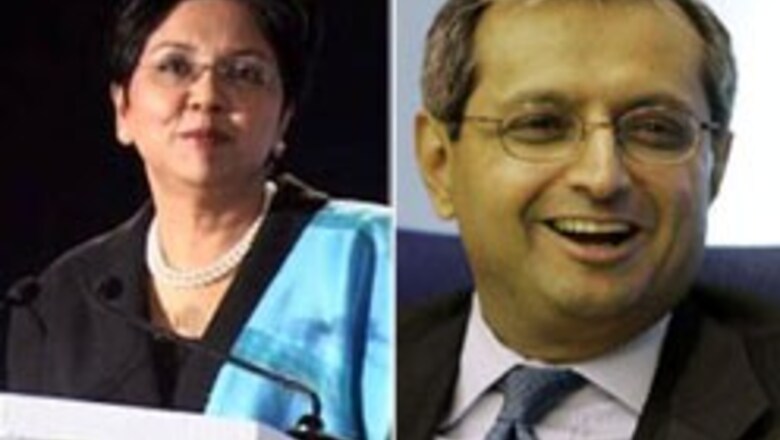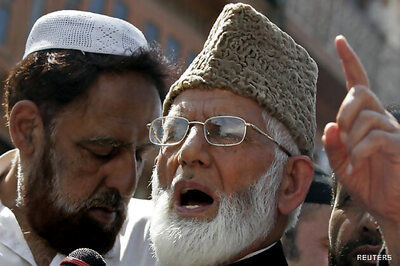
views
New York: The ascension of Indian-born leaders like Vikram Pandit, the new CEO of Citigroup Inc., tracks the economic rise of India, which once seen by US business as a large market and a source of low-cost technology workers. Now India is viewed as a business power that rivals the US in some industries.
The change is visible on the board of the US–India Business Council, once comprised only of executives from US companies doing business in India. Now the board includes executives from global companies with business in India, Indian-Americans heading global businesses and Indian companies with interest in the US.
Board members include Arun Kumar, head partner at KPMG International, Indra Nooyi, CEO of PepsiCo Inc. and Lakshmi Narayanan, vice chairman of Cognizant Technology Solutions, an outsourcing company that bills itself as ''the best of both worlds.''
Arcelor Mittal has grown into the world's largest steelmaker, offering $1.65 billion last week for the remaining shares of Chinese steelmaker China Oriental Group Co. it doesn't already own. While the company is based in the Netherlands, its Indian CEO and founder, Lakshmi Mittal, controls nearly half its shares.
India's outsourcing companies have grown to take on more valuable contracts, pitting them against US-based giants such as IBM Corp. and Accenture Ltd.
India's Tata Consultancy Services Ltd. in October announced a $1.2 billion contract from American market research firm Nielsen, the largest outsourcing order ever won by an Indian company and one that includes services from information technology infrastructure management to payroll processing.
Tata Group has expressed its interest in buying troubled Ford Motor Co.'s Jaguar and Land Rover units.
''It's harder to see the borders now,'' said Gregory Kalbaugh, director and counsel of the US-India Business Council.
As the Indian economy has been on a tear, clocking 6 per cent to 8 per cent annual growth, Indian and US political leaders have viewed business ties as a way to bring the countries closer.
President George Bush and Prime Minister Manmohan Singh handpicked members of the US-India CEO Forum, launched in 2005, to plan increased partnership and cooperation.
Meanwhile, US businesses, increasingly dependent on foreign trade, have intensified their interest in promoting an international group of executives.
Nearly half of sales for 238 of the largest US companies was from outside the US for fiscal year 2006, up from one-third of sales in fiscal 2001, according to Standard & Poor's.
At the same time, Indians who came to the US to study 30 years ago have worked their way up the ranks of American companies.
The latest round of promotions includes Shantanu Narayen, who joined Adobe Systems Inc. in 1998 and was appointed CEO in December.
Others have been in their jobs far longer, such as Ramani Ayer, chairman and CEO of Hartford Financial Services Group Inc., who has led the company since 1997.
Rising business tycoons:
K S (Sonny) Kalsi, managing director and global head of Morgan Stanley's real estate investing business, which has $88.3 billion (60.1 billion) in assets under management
Meena Mutyala, vice president of engineering and product management for Westinghouse Electric Corp.'s nuclear fuel business worldwide.
Sheila Hooda, senior managing director, strategy at $437 billion (297.6 billion) investment company TIAA-CREF, who was previously a managing director in the investment banking division at Credit Suisse.
The rise of Indian-born executives such as Pandit, who on Monday was named CEO of Citigroup, the world's largest bank, follows by more than a decade the advances of Indian business consultants.
A handful of Indian-born academics, especially Ram Charan and C.K. Prahalad, long ago established themselves at the upper echelons of business consulting; consultant and author Charan was reportedly the first outsider Jeffrey Immelt turned to for advice when he became CEO of General Electric Co.
Rajat Gupta, who joined McKinsey & Co. in 1973, was elected managing director of the management consulting firm in 1994, then re-elected to two more three-year terms in 1997 and 2000. Gupta is leaving McKinsey at the end of this year to concentrate on his board positions.
One of Gupta's latest gigs: Special adviser on management reform to the Secretary-General of the United Nations.




















Comments
0 comment